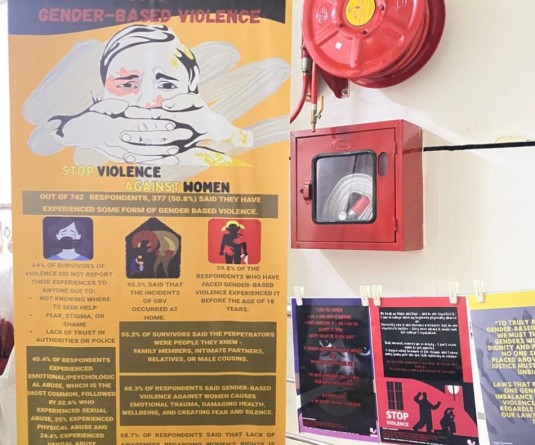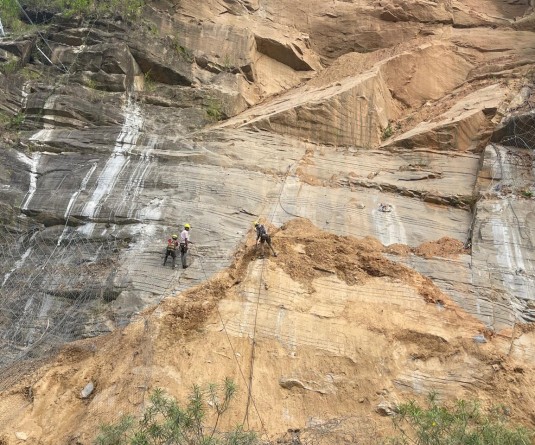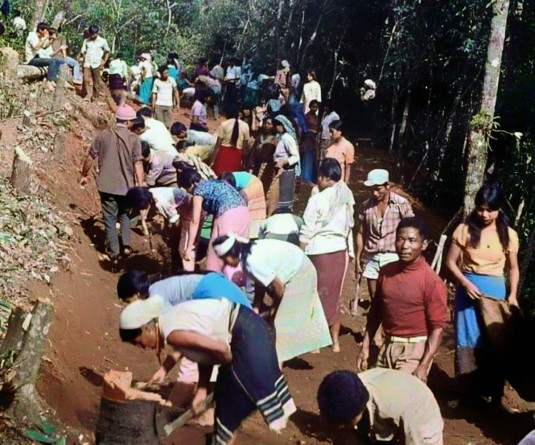
DIMAPUR, JANUARY 29 (MExN): The Global Open University Nagaland (TGOUN) recently completed a study project which has been compiled in the form of a handbook titled, “The Way Forward for Nagaland.”
According to a press release issued by Martoshi Longkumer, Planning Officer, TGOUN, the handbook offers short-term and long term suggestions for improving quality of life for people related to health, education, housing, transport, information technology, unemployment, social justice, rural and urban poverty, drug addiction, environmental degradation, water scarcity, energy unavailability, garbage disposal, sustainable agriculture, human rights violation etc.
The effort to compile the problem areas and finding appropriate solutions was based on motivation from NPF President Dr Shurhozelie Liezietsu and founder Chancellor, TGOUN Dr Priya Ranjan Trivedi who suggested the hypothesis and guidelines for compiling information related to “district wise and district wide problems of the different tribes at grass root level.”
Dr Priya Ranjan Trivedi maintained that there is an urgent need for economic understanding, strengthening of local self-governance, medicinal plantation, skill based training in the new and emerging areas of cosmetology, beauty sciences, cleanliness, hygiene, sanitation, pollution control, disaster preparedness, hotel management, catering and applied nutrition, adventure, ecological and sustainable tourism and integrated mountain development.
Harnessing of the resources and potentials require not only investments but also policy interventions to encourage such investments, Dr Trivedi pointed out.
According to him, the State government’s role in making the investments cannot be underestimated but the limited availability of financial resources with the government necessitates that private investment is encouraged.
He however cautioned that the resources available should be used efficiently and in a sustainable and planned manner for equitable economic growth within a reasonable time-frame. Vice Chancellor Dr HN Dutta stressed the need to produce goods to take advantage of existing local markets and exploit the demand for indigenous products outside the State in order to reduce the trade gap, resource drain and to benefit from the income and livelihood opportunities thereof.
He also advocated on preparing a database of the available infrastructure and a comprehensive road map for building infrastructure and plan public spending with a clear focus.
According to Dr Imotemsu Ao, Registrar, “the limited prospects for expansion of Government activities necessitate the encouragement of private investment for accelerating economic growth in the State and also for creating employment opportunities….The State government has to generate sufficient resources of its own in the near future.”
The Board of Advisors for this study and compilation work consisting of Dr Shürhozelie Liezietsu, Deo Nukhu and TN Mannen viewed that oil exploration and extraction can also be a major source of revenue for the State government and for economic uplift of the society.
Maintaining eco-balance through eco-restoration measures and environmental protection programmes was also suggested, along with compilation and documentation of the State’s biodiversity and patenting the unique knowledge and uses of this biodiversity.
The Global Open University Nagaland in a study found that in order to improve quality of life and economy for the Naga people, it should:
• Harness available resources and potentials • Encourage private investment-from within and outside
• Meet demand for indigenous products outside Nagaland • Plan public spending with a clear focus to execute plan
• Oil exploration and extraction can be a major source of revenue
• Maintain eco-balance through eco-restoration measures






